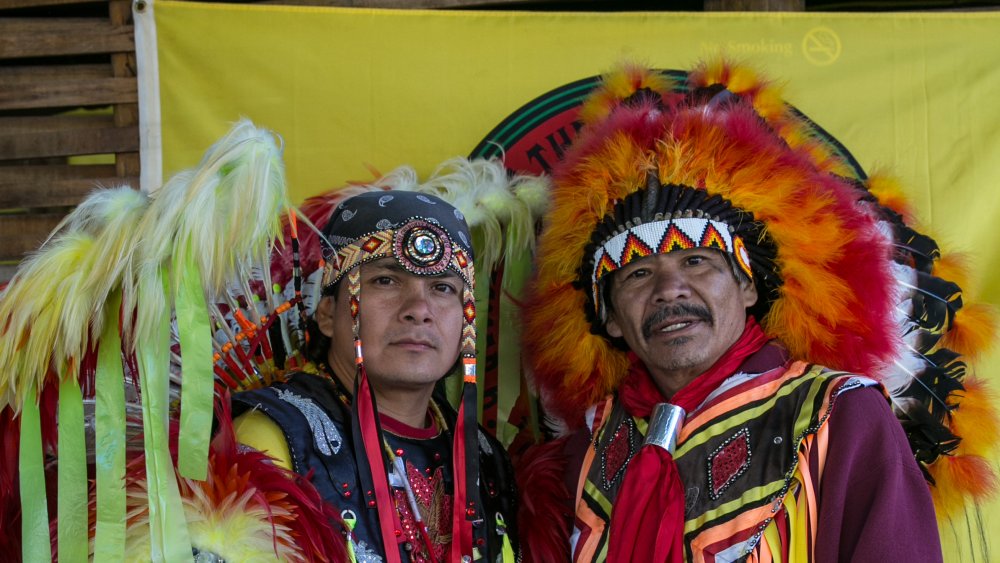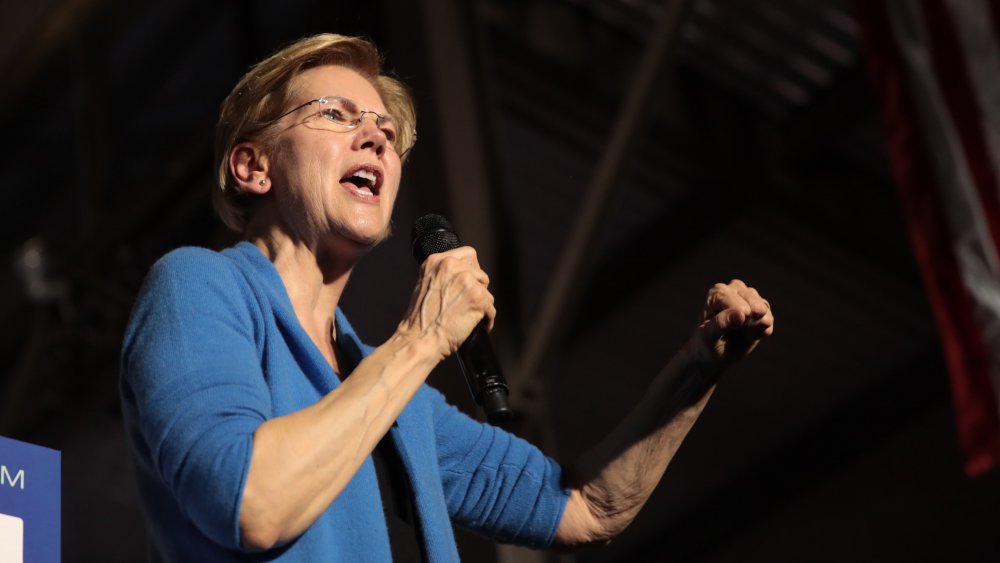The Real Reason So Many People Believe They Are Part Cherokee
The United States' historical treatment of its indigenous peoples is contentious, to say the least. As explained by Vox, from 1794 to 1887, during the Westward Expansion, Native American lands shrunk to almost nothing, and then the Dawes Act in 1887 chopped up what little land was left and divided it up between tribes, as a precursor to the modern reservation system. The "Indian Problem," as it was called, per Khan Academy, was solved by selling 90 million acres of tribal land to white Americans and forcing citizenship and assimilation on those Native people, who inevitably accepted the terms of the legislation.
Among Native American tribes, the Cherokee are one of the most well-known, and at present, many Americans claim Cherokee heritage. In fact, as stated in Voa News, "Cherokee Syndrome" has resulted in as many as 819,000 people of single or mixed-race (according to a 2010 census) claiming Cherokee heritage, even though officially recognized Cherokee numbers are less than 400,000. In fact, more people claimed Cherokee ancestry than any other tribe in the US.
For decades, celebrities and politicians galore have jumped on the bandwagon, as well. Johnny Cash, Cher, Chuck Norris, Angelina Jolie, Johnny Depp, Bill Clinton, Miley Cyrus, and most recently Elizabeth Warren, who was found by DNA tests during her 2020 candidacy to be anywhere from 1/32 to 1/1024 Cherokee, according to NPR. All of these people may have something in common, however, besides a racial score card — where their families are from.
The Cherokee as a part of "Southern heritage"
Cherokee ancestral land centered on modern-day, eastern Tennessee and encompassed parts of Kentucky, West Virginia, Virginia, North Carolina, South Carolina, Georgia, and Alabama, as depicted on Arcgis. It wasn't until the Trail of Tears from 1838-1839, though, that the Cherokee diaspora really started, which created the reason why so many people say they're part Cherokee to this day.
According to History, The Cherokee were forced, without signing any official treaty, to walk 800 miles to present-day Oklahoma. The tribe splintered, some hid and never joined the march, while nearly 3,000 died along the way. Cherokee were scattered throughout the south, started to attend schools, travel more openly, and intermarry with non-Cherokee, more and more. At the same time, the federal government instituted their "blood quantum" rule, as described in Slate, which categorizes ancestry according to fractions. Over time, people in the south came to associate the adoption of Cherokee bloodlines with the authenticity and longevity of "Southern heritage." As a point of pride, parents told their children that their grandmother, or great-grandfather was Cherokee. As stated by Timeline, they also, very ironically, came to analogize the Cherokee's fight against an oppressive government with their own socioeconomic struggles.
In the present, the belief in Cherokee blood is more real than the ancestry itself. Those who service the myth are doing no favors at all to those members of the Cherokee nation striving everyday to maintain their heritage, language, and identity.

